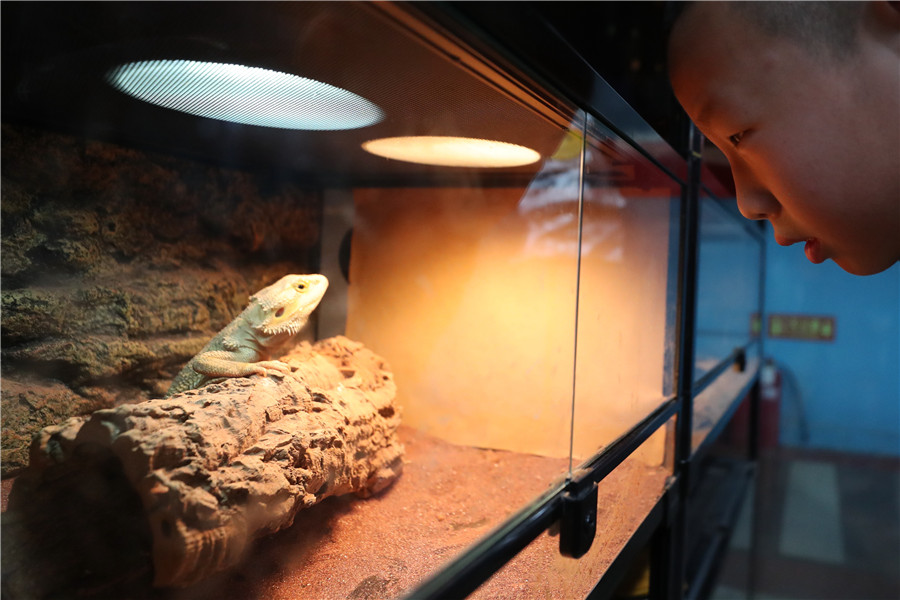Exotic species get claws into pet market


Background research
Given the rising popularity of exotic pets, experts are urging owners to conduct research on animals before buying them. Many have warned that some exotic pets may pose health risks because they can carry bacteria and parasites linked to infectious diseases. For example, some reptiles can transmit salmonellosis, whose symptoms include diarrhea, fever, abdominal cramps and vomiting.
"The old, young and people with weakened immune systems are more likely to develop severe illnesses. In some serious cases, people can die from the infection," said Zou Qiangjun from the Beijing Aquatic Wild Animals Rescue and Care Center.
He said that in recent years, the center has received reports of pets, including snapping turtles and giant salamanders, being bred in captivity and then abandoned.
In 2012 and 2015, the center rescued two 1-meter-long Siamese crocodiles that had been abandoned in a river and on a golf course. When experts examined the crocodiles, they discovered that the reptiles had been bred in captivity.
According to a report by World Animal Protection, nearly 50 percent of first-time buyers "hardly take any time" to learn about their animals.
"They lack enough knowledge and preparation to raise wild species at home. Some young wildlife might be cute and suitable for keeping at home, but things may go beyond people's expectations," Zou said.
"Wild animals belong in the wild. The best thing we can do for them is to respect their original conditions and leave them in the wild."


















